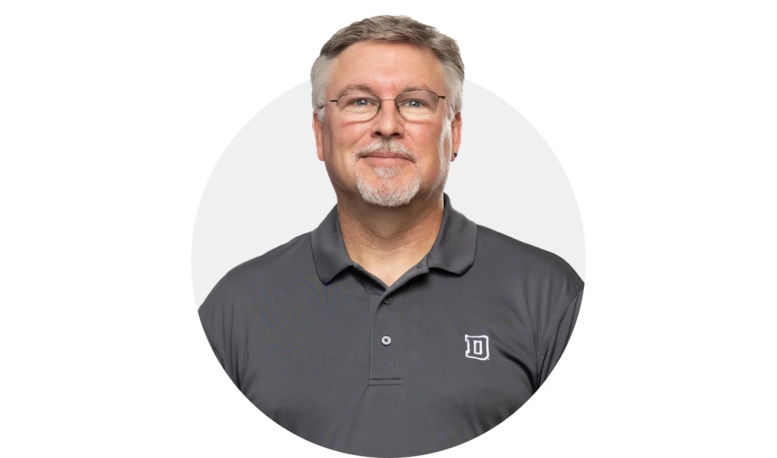What are the strangest repairs you’ve done at the Computer Store?
People sometimes leave their laptops on top of their cars and drive off—some fall very quickly, some make it to the interstate before falling off. Those wind up in a million pieces. Probably the funniest was when someone moving out of an apartment was carrying both their mini fridge and computer downstairs. The computer fell off the top of the fridge and down the stairs. They dropped the fridge, and the fridge landed on the laptop.
What’s the most common laptop repair?
Basic hardware failure. Screens, screen connections, keyboards, stuff like that. We get a lot of accidental damage. It’s something different every day.
What items do you sell the most?
All kinds—accessories, lots of laptops, iPads, cables, chargers. We also sell hard drives, flash drives, a mix of everything.
Do incoming students wait until they arrive to buy a laptop or order them earlier?
Now they usually have their computers shipped, starting in the summer. But by September we have about 200 computers waiting. Before, it was a single distribution day with hundreds given out in a few hours. It was like The Hunger Games.
Two years ago you started selling computers to alumni. Why?
We’re an educational reseller with contracts with vendors such as Apple and Dell. Until recently they didn’t allow sales to anyone but current affiliates. Now alumni can purchase computers and accessories at educational prices, usually cheaper than retail. They can also get repairs done here.
Any advice for students on a new laptop?
The biggest is to get something we support here on campus. We can’t work on Lenovo or HP, and it’s a big deal to ship those out. For Windows, go with Dell professional lines we sell. We work on Apple machines no matter where they are bought. It’s easier when students have something we can support, especially near deadlines.
Are there useful accessories people should buy?
Fewer people use external hard drives or flash drives because of the cloud, but it’s smart to back up important data even occasionally. We see crashes happen around exams and papers, and then students realize they didn’t save the latest versions.
What can you do to make laptops last longer?
Don’t load the hard drive with a million things. Delete stuff not in use or move it to external drives. Keep the OS updated and have antivirus-malware software.





